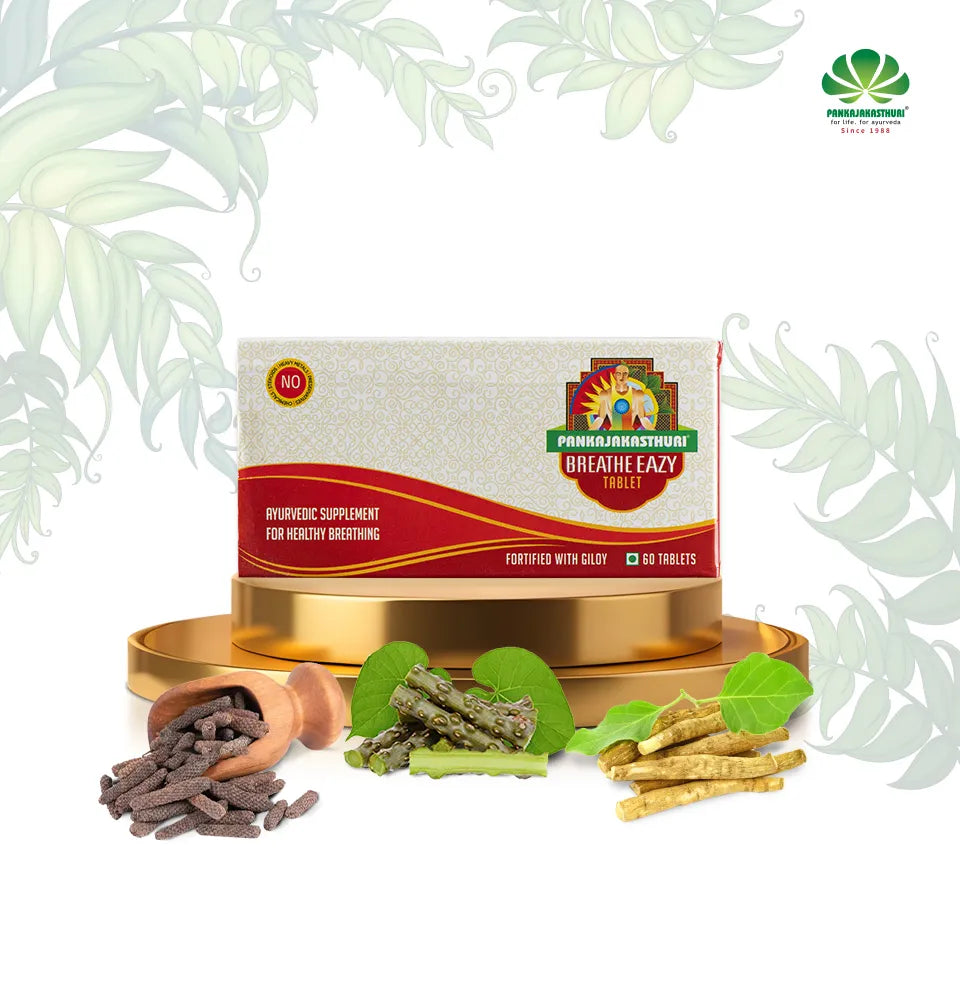
Managing Sleep Disorders the Ayurvedic Way: A Holistic Approach

Sleep is one of the pillars of good health. Yet, sleep disorders have become increasingly common in modern life, often overlooked until they impact daily functioning. Untreated sleep disturbances can lead to serious consequences - ranging from chronic diseases such as hypertension, heart disease and diabetes, to mental health concerns like depression, anxiety and impaired cognitive performance.
While conventional medicine provides several approaches to managing sleep disorders, Ayurveda - India’s ancient system of holistic healing -offers time-tested wisdom that addresses not just the symptoms, but the root causes of insomnia and other sleep disturbances.
Common Sleep Disorders: An Overview
Understanding sleep disorders is the first step toward healing. Some of the most prevalent sleep disorders include:
-
Insomnia (Anidra) – Difficulty falling asleep, staying asleep or waking too early.Often linked with stress, anxiety and poor sleep hygiene.
-
Sleep Apnea– Characterized by breathing pauses during sleep, often associated with loud snoring and daytime fatigue.
-
Narcolepsy– Chronic neurological disorder marked by excessive daytime sleepiness and sudden sleep attacks.
-
Restless Legs Syndrome (RLS)– Unpleasant sensations in the legs with an irresistible urge to move them, especially in the evening.
-
Parasomnias–Unusual behaviours during sleep such as sleepwalking, night terrors or sleep talking.
-
Circadian Rhythm Disorders–Disruptions in the body's internal clock, causing difficulty falling asleep or waking at appropriate times.
-
Shift Work Sleep Disorder–Caused by working irregular hours, conflicting with the natural sleep-wake cycle.
Ayurvedic Understanding of Sleep Disorders
In Ayurveda, sleep (Nidra) is considered a natural and essential function governed by doshic balance - primarily Vata, Pitta and Kapha .When these energies are out ofharmony, sleep disturbances may arise.
Dosha-Based Causes of Anidra (Insomnia):
-
Vata Imbalance:This dosha governs movement and the nervous system. When aggravated, it causes racing thoughts, anxiety and restlessness - common triggers of insomnia.
-
Pitta Imbalance:Excess Pitta leads to heat, irritability and night time awakenings often accompanied by sweating or intense dreams.
-
Kapha Imbalance:Although less commonly a primary cause, excessive Kapha can lead to sluggishness and excessive napping, which disturbs night time sleep cycles.
Ayurvedic Approach to Treatment
Ayurveda addresses the root causes of sleep disturbances using a comprehensive lifestyle, dietary, herbal and therapeutic approach. This personalized care model promotes restoration of doshic balance and deep relaxation.
-
Lifestyle Modifications (Dinacharya)
-
Consistent Sleep-Wake Schedule: Aligning with natural circadian rhythms supports deeper, more restorative sleep.
-
Soothing Bedtime Routine:Gentle yoga, reading, warm baths or listening to calming music helps signal the brain to wind down.
-
Reduce Screen Time: Blue light from devices stimulates the brain - ideally avoid screens 1 hour before bed.
-
Avoid Late Afternoon Naps: Especially if suffering from night time insomnia.
-
Create a Sleep-Friendly Environment: Dark, quiet and slightly cool rooms support melatonin production and better sleep.
-
-
Dietary Guidelines
-
Favor Light, Warm Foods:Soups, stews and cooked grains digest easily and soothe the nervous system.
-
Sleep-Promoting Foods: Warm milk with nutmeg or cardamom, ghee, almonds and bananas are calming to Vata and Pitta.
-
Avoid Heavy Meals at Night: Especially fried, spicy or overly processed foods.
-
Soothing Spices: Use nutmeg, cinnamon, saffron and cardamom to support relaxation.
-
-
Ayurvedic Herbs for Better Sleep
Ayurveda offers a range of herbs with adaptogenic, calming and sedative properties.
-
Ashwagandha: An adaptogen that reduces stress and anxiety.
-
Brahmi:Enhances mental clarity and relaxes the mind.
-
Jatamansi: A natural sedative that supports deep sleep.
-
Tagara: Promotes better sleep quality.
-
Shankhapushpi: Effective for calming the nervous system.
-
Sarpagandha: Used in chronic insomnia for its strong sedative effect.
-
Vacha: Balances the nervous system and aids inducing sleep.
-
-
Classical Ayurvedic Therapies
Ayurvedic body treatments provide profound nervous system relaxation and are often part of a clinical protocol for Anidra.
-
Abhyanga (Oil Massage): Full-body massage using warm oils like sesame or Brahmi oil calms the Vata dosha. Foot massage (Pada Abhyanga) before sleep is especially effective.
-
Shirodhara: Warm medicated oil is poured over the forehead to calm the mind and relieve stress-induced insomnia.
-
Nasya Therapy: Medicated oils are administered through the nose to clear the mind and balance head-based Vata.
-
Karnapurana: Pouring warm oil into the ears relaxes the auditory nerves and calms the mind.
-
Shankhapushpi: Effective for calming the nervous system.
-
Shirovasti:Holding warm oil on the head using a leather cap - a traditional therapy for neurological and sleep disorders.
-
-
Yoga and Pranayama
Gentle evening yoga and calming breathing practices help prepare the body for restful sleep:
-
Yoga Poses: Child’s pose (Balasana), Legs up the wall (Viparita Karani) and Supine twists.
-
Pranayama Techniques: Sheetali and Sheetkari (cooling breaths), Nadi Shodhana (alternate nostril breathing) help soothe the nervous system and promote tranquility.
-
Final Thoughts:
In an age of digital overstimulation, erratic schedules and heightened stress, sleep disorders have become a silent epidemic. Ayurveda provides a holistic, non-invasive and deeply nourishing path to restore natural sleep rhythms, using a combination of herbs, therapies, mindful lifestyle changes and age-old wisdom.
If you're struggling with sleep disorders, consider exploring Ayurvedic care under the guidance of a qualified practitioner. True healing starts with balance - and one of its earliest rewards is deep, restful sleep.















